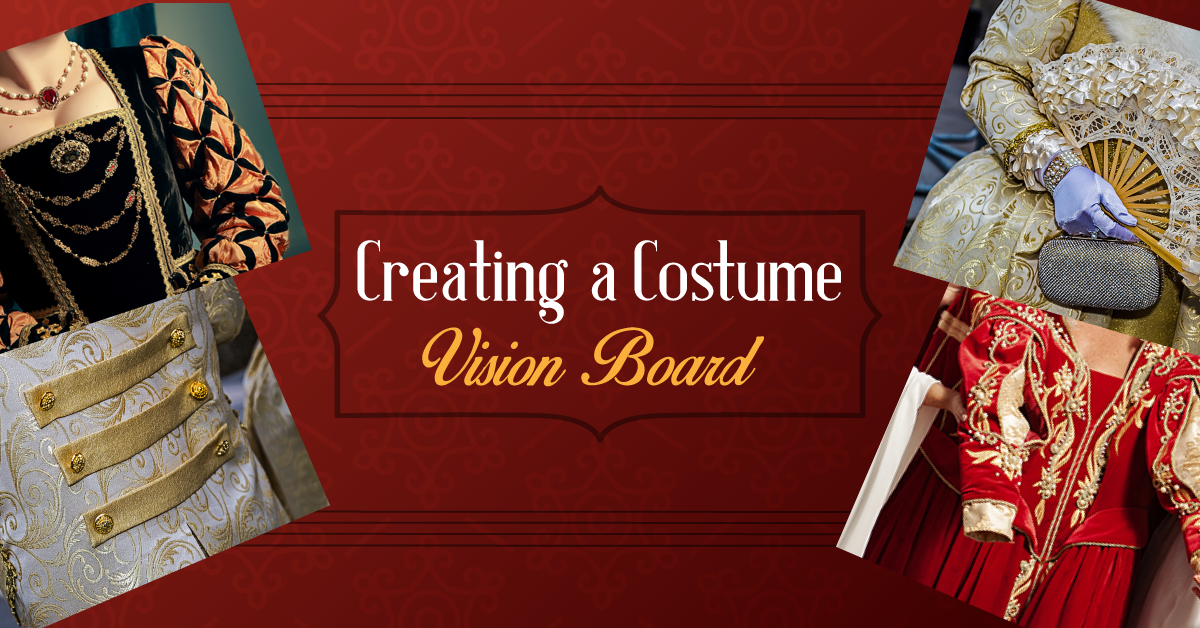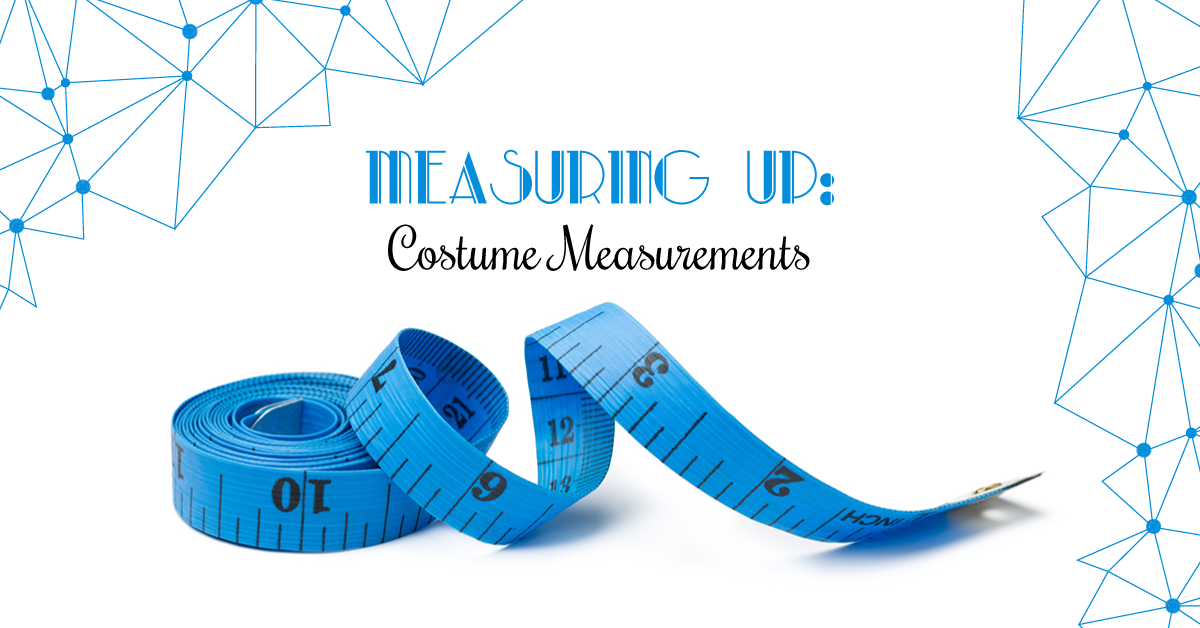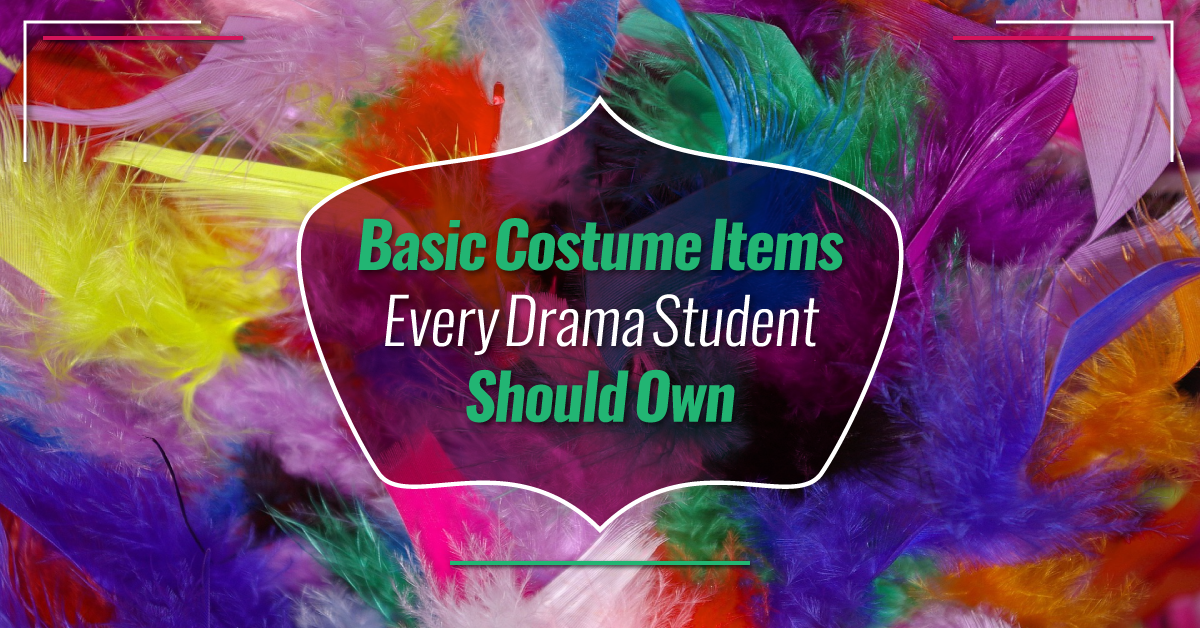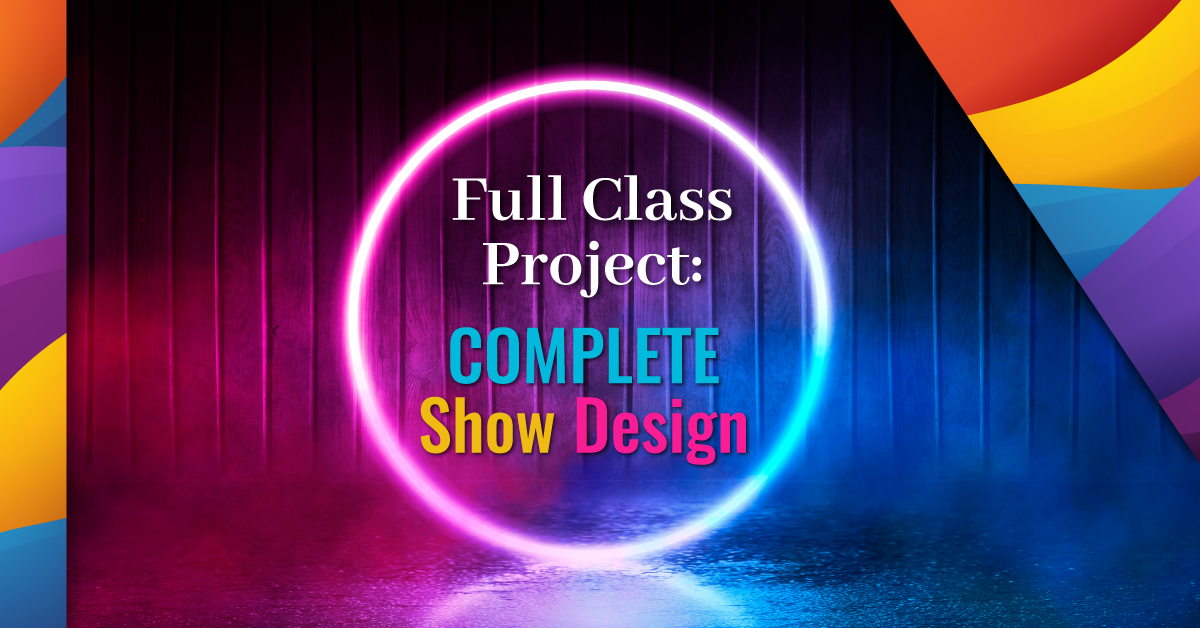A squirt gun would never be mistaken for a real gun, right? Dive into the thought-provoking world of Water. Gun. Argument and challenge what we choose to believe. A thought provoking and powerful piece in a docu-theatre style.
Create a Costume Vision Board
A vision board is a visual representative of the look of the show. Directors can use a vision board to illustrate their concept of the show to their design team. It can also be used to illustrate the mood of the show that the director intends to evoke onstage.
A costume designer can use a vision board in a similar way; to illustrate their design concepts for the show. It clearly displays the overall image of what each character will look like and wear onstage, including costumes, hairstyles, and makeup.
Each actors can even create their own vision board for their character to help them get to know the character. How do they visualize their character? What do they look like to the actor? What clothes does the character “choose” to wear?
A vision board can inspire other aspects of the design, from the props and sets to the sound and lighting.
The following exercise puts students in the role of costume designer. Assign each student a different character in a show they are currently studying, and follow the directions to create a vision board for that character. For a bigger challenge, have them go through the process for ALL the characters in the show to create an overall cohesive look!
1. Read through the script and make note of the following:
- The year or time period the show is set in.
- The location of the show. For example, a show set in Africa will have very different costume needs compared to a show set in Antarctica.
- Any specific or essential costume notes included in the script. For example, a stage direction might say something like “Fred removes his hat and sets it on his desk” or “Minnie bursts into the room, dressed for bed.” You’d note that Fred needs a hat of some kind, and Minnie needs some sort of nightwear. (Pajamas? Nightgown? Bathrobe? What suits the character best?)
- If the character changes clothes in the show or wears the same costume throughout. (How many costume changes? Are they all necessary?)
2. Think about your “vision” for costuming the show.
Are you going to stick to the date and location stated in the script, or go in a totally different direction? I have seen productions of “The Scottish Play” performed in many different ways: traditional Scottish garb, black, witchy, and Gothic costumes, or Desert Storm fatigues.
Describe your vision in five words or less. Perhaps your version of “The Scottish Play” will be “elegant, vintage, and flowy” versus “black, witchy, and Gothic.” Whatever you choose, make sure that every design aspect of the show supports your vision.
Think about your costume details from head to toe. It’s not just the actual clothing that the character wears, but also specific hairstyles, makeup, accessories (hats, gloves, jewelry, belts, bags), and footwear.
Although technically any item carried onstage is a prop, if an item is essential to the character (like a fan, a makeup compact, a weapon, or a book), include it in your vision board to illustrate that it is an essential part of the character.
3. Here’s the fun part – creating the vision board. Here are my two favourite ways:
- Analog – Get some scissors, glue, a stack of magazines, a big piece of poster board, and start creating! Look for images of clothing, makeup, hairstyles and words that describe the character’s look. Cut them out and create a collage on the poster board. Include printouts from websites, sketches, colour palettes, and textile samples such as fabric swatches, ribbons, trims, and buttons as well.
- Digital – Pinterest is a great website that can be used to create a digital vision board. It’s like a virtual bulletin board where you can “pin” images from around the Internet to your own curated profile – and it’s free to join!
If you’d rather not join a website, collect appropriate images from the web that illustrate your vision for the show, and put them together in a PowerPoint slideshow, or create a digital collage using Photoshop or similar editing program.
Whatever your concept, creating a vision board will help clarify and cement your ideas into an appealing visual display. Be sure to send us photos of the vision boards you create!



